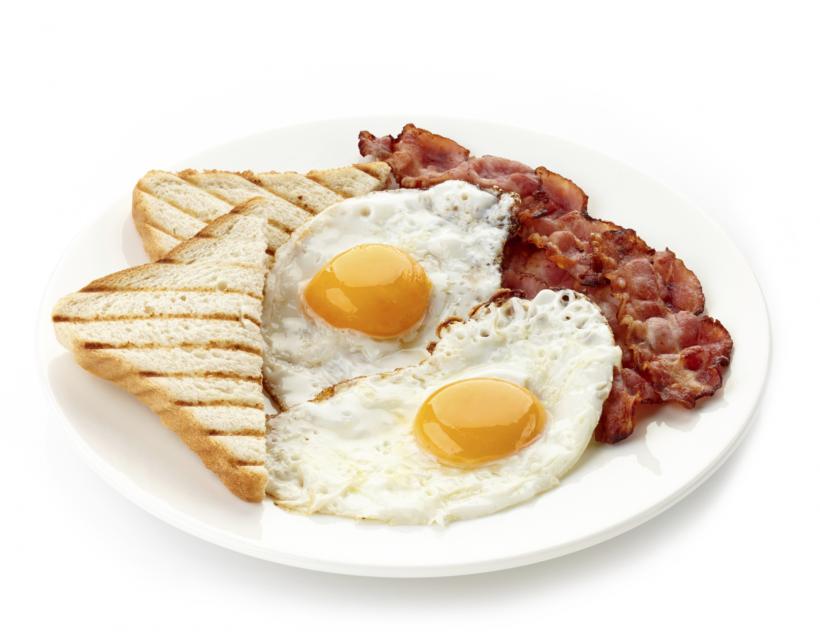
Thinkstock
For the first time in six months, Violet woke up hungry. She threw on a robe and walked to the kitchen, opened the fridge to find it fully stocked. Fresh orange juice, milk, thick slices of ham, a block of cheese, a carton of eggs—her husband kept it this way should this moment arrive. This was the moment and Violet wasn’t just hungry, she felt ravenous.
Her husband still in bed, she worked quietly and quickly pouring herself a tall glass of juice, cutting a thick slice from a fresh sourdough loaf for toast. She cracked one egg over a hot, buttered pan and watched the clear edges gel to white. With a pink rubber spatula, Violet delicately lifted the bottom of the egg, and in one swift motion, flipped it without harming the yolk. A moment later, she scooped it onto a warm plate.
When the toast sprung up a light shade of brown and the coffee maker gurgled its last breaths of effort, she assembled her tray of breakfast essentials and carried it to the bedroom, careful not to tip over the small vase holding a tiny red rosebud.
Her husband sat up in bed—groggy, his hair a mess—and smiled when he saw her. She could tell he was proud. He urged her to take the first bite. Starving, she complied, and stuck a knife in her perfect fried egg, letting the creamy yellow yolk drip down the sides and leak onto the white porcelain plate.
She took a bite. Sliding back to her throat, the texture proved too soft. A bite of toast scratched the roof of her mouth and left a buttery film on her tongue. She washed it down with orange juice, only to choke on its bittersweet acidity. That’s when she knew.
Nothing would ever taste good again as long as she only had her body to feed.







